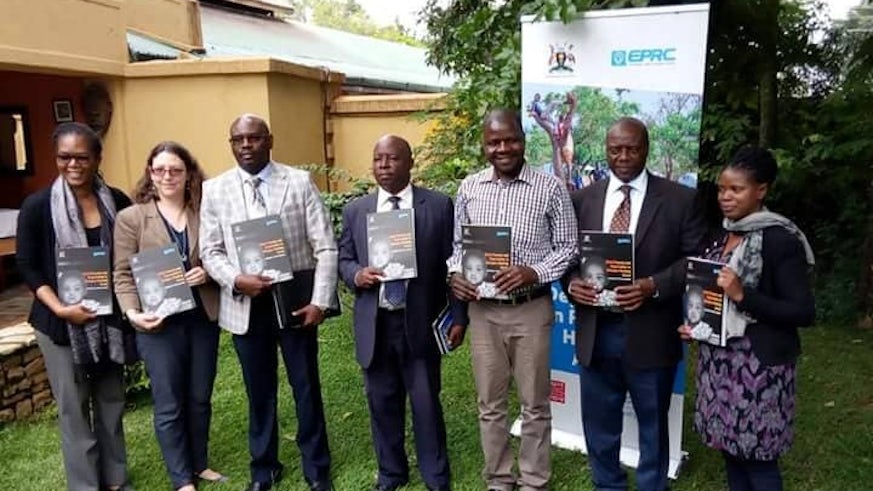Child poverty and deprivation among Ugandan refugees
13 June 2018

A study conducted by Cardiff University academics, in association with the Economic Policy Research Centre (EPRC) in Uganda and UNICEF Uganda has explored child poverty and deprivation in refugee hosting areas of Uganda.
Dr Shailen Nandy and Dr Marco Pomati contributed to the study which assessed child poverty, deprivation and social service delivery in three of Uganda’s major refugee-hosting districts.
The study showed that both refugee and host communities in these three districts - West Nile, the South West, and Kampala - were all found to still lack basic services like water, sanitation and shelter, despite provisions made by the country’s government.
Refugee children were found to be more deprived across a range of indicators than children in host communities.
The findings identified an urgent need to facilitate social and economic integration, to improve living standards for and livelihoods of both refugees and hosts. The hope is that this will improve communication between the various parties and allow for the peaceful sharing of limited resources.
However, it was found that deprivation among refugees tends to reduce over time. Within five years of residence, deprivation rates among refugees were on a par with those of hosts. However, this was largely due to high levels of deprivation among host communities.
In 2017, Uganda’s refugee population was estimated to total 1.4 million, hosting people displaced by conflict in neighbouring South Sudan, Democratic Republic of Congo, Rwanda and Burundi.
The study was funded by UNICEF-Uganda out of a concern for the impact that severe poverty has on children’s lives, development and opportunities.
Working with the EPRC, the study used interviews in a survey of 650 households to assess conditions and provision for children and families.
The study used the Consensual Approach to assess poverty among refugee communities; the approach enables separate assessments of multidimensional poverty for children and adults according to national definitions. It was also used in Uganda’s 2017 National Household Survey, the data from which are currently being analysed by Dr Nandy and Dr Pomati, in conjunction with colleagues at the Townsend Centre for International Poverty Research in the University of Bristol.
Dr Doreen Mulenga, UNICEF’s Representative in Uganda said: “We need to go beyond emergency response to build the systems and capacities of all social services in refugee hosting districts. Only by doing so – with health, nutrition, education, water, sanitation, and child protection services, among others – will we reduce the multiple deprivations experienced by tens of thousands of refugee children and children in host communities.”
Dr Sarah Ssewanyana, EPRC’s Executive Director said of the study: “The study represents the first attempt to compare child poverty and deprivation in host and refugee communities in Uganda. Globally, it represents the first application of a consensual approach to measuring poverty and emergency situations.”
Dr Marco Pomati is currently working with the EPRC to examine trends in child nutrition outcomes and household food expenditure. Dr Shailen Nandy is working with UNICEF Uganda on developing training materials for researchers interested in using the Consensual Approach in other studies and household surveys.
Share this story
The School is an internationally recognised centre of high quality teaching and research.





